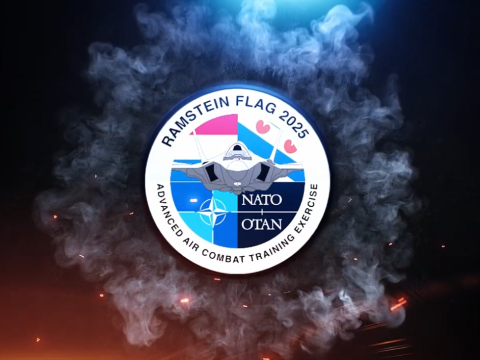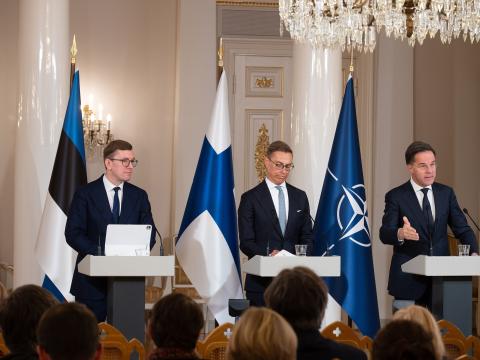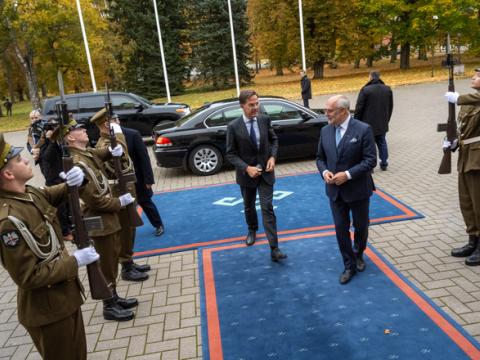Partnerships, Training Build NATO Cyberspace Policy
Encountering many variables as it strives to achieve effective cybersecurity, NATO is focusing on two long-standing constants to move forward: training and partnerships with industry. The Atlantic alliance is seeking industry help in pursuing solutions, and it is adopting many traditional methods and institutions to train personnel in vital cyberskills.
The Wednesday morning keynote panel at the AFCEA International Cyber Symposium, being held June 24-25 in Baltimore, addressed the international challenges faced by NATO in cybersecurity. Four of the five panelists were NATO officials, and the fifth panelist had done extensive consulting with NATO on cybersecurity.
Melissa Hathaway, president of Hathaway Global Strategies and a former acting senior director for cyberspace with National Security Council, offered that engaging private sector innovation will help NATO increase its agility, manage costs and increase its ability to ensure national and transatlantic security. Dr. Velizar Shalamanov, Ph.D., director, demand management, NATO Communications and Information Agency, said his agency is focusing on partnerships, especially with industry, in several areas, because it is the only way to be successful in cyberdefense. He noted the alliance is working closely with the NATO Industrial Advisory Group to develop ways of cooperating with industry.
Various institutions are being employed to train cybersecurity experts, and NATO is moving toward establishing a cybersecurity school. “The way we’ve trained and become an effective military coalition, we have to do the same thing with cyber,” said Lt. Gen. Mark O. Schissler, USAF, deputy chairman, NATO Military Committee. “Not all NATO nations believe cyber is a domain, but it’s not too early to begin training together.”




Comments